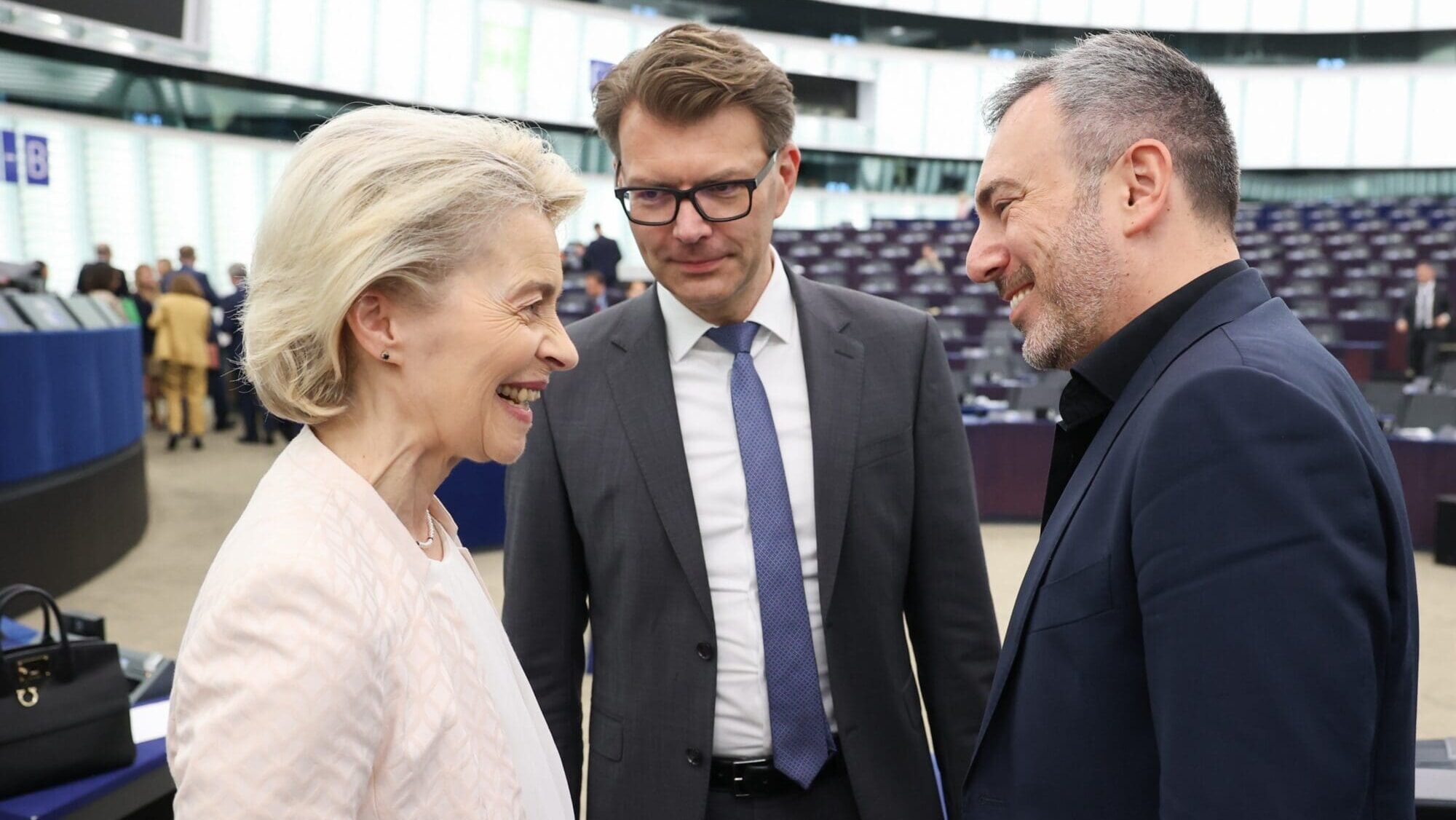No products in the cart.

Commission President Ursula von der Leyen with German MEPs Daniel Caspary (EPP) and Sergey Lagodinsky (Greens/EFA)
Photo: Alexis HAULOT © European Union 2024 – Source : EP
Fresh from her re-election campaign, Commission President Ursula von der Leyen outlined plans for a new EU Housing Commissioner at a plenary session in Strasbourg on Thursday.
In a classic example of EU overreach, von der Leyen described how Brussels would develop a “European Affordable Housing Plan, to look at all the drivers of the crisis and to help unlock the private and public investment needed,” and that bureaucrats would create a new Housing Commissioner to administer the task.
While von der Leyen was short on details, pundits believe that the EU will direct additional funding to so-called ‘cohesion funds’ originally meant for underdeveloped member states. This funding will support the housing project, and the European Investment Bank will launch a new tool to attract more public and private funding for building projects.
Facing intense criticism from MEPs on the Left as well as the Right for her first five years at the helm of the EU, von der Leyen was re-elected with a 41-vote majority following last-minute backing from European Greens and Italian prime minister Giorgia Meloni’s conservative Fratelli party.
Eurocrats have been strengthening their grip over homebuilding in recent years with green directives such as the Energy Performance of Buildings Directive (EPBD), which mandates new dwellings meet higher energy standards.
Many social democrat MEPs have boasted about forcing von der Leyen to create the position in return for support for a second term. Recently elected Irish MEP Aodhán Ó Ríordáin said he “had the opportunity to push hard at key negotiations to put forward the case for a Housing Commissioner.”.
Recent polling has listed housing as a top priority for the Netherlands, Luxembourg, and Ireland. The previous Dutch government collapsed just last year due to the impact of asylum policy on housing supply.
Alongside commitments on housing, von der Leyen also presented her case for a new “Defence Union” to centralise defence spending and procurement across the bloc. Commentators believe that military policy will take centre stage over Green issues for the next five years of EU policy making.